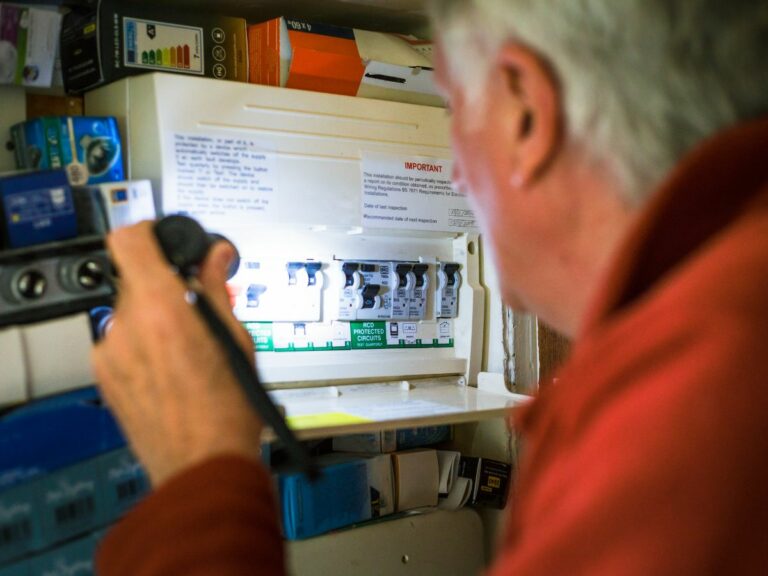Blown Fuse in House: Common Causes and Quick Solutions
A blown fuse in house can be inconvenient and put your electrical system in danger. Maintaining a safe and functional house requires understanding frequent causes and being aware of fast fixes. In this blog post, we will look at the causes of blown fuses, warning signals to watch out for, and remedies you can employ right away.
Recognizing Blown Fuses
Maintaining the safety and efficiency of your electrical system depends on your ability to identify blown fuses. Providing safety for an electrical circuit is the main function of a fuse. The fuse serves as a key barrier during overloads and short circuits, effectively terminating the circuit to stop additional harm to the electrical wiring and linked appliances.
Fuses are created with a specified current flow capacity in mind. Blowing fuses may result from exceeding this set limit. When a fuse bursts, it implies the circuit has been disconnected because the fuse’s capacity has been surpassed by the current. This quick action is necessary to avoid dangerous heat accumulation, electrical fires, and potential harm to other electrical components.
Neglecting blown fuse in house might have negative effects. The potential of electrical fires is one of the biggest threats. A blown fuse signals the presence of an underlying problem, such as an overloaded circuit or a short circuit, that requires immediate attention. Ignoring the blown fuse and neglecting to locate and address the underlying issue may cause heat to build up in the wiring, which may eventually result in a dangerous fire situation.
In addition, leaving blown fuses unattended can cause more damage to electrical components. The fuse’s job is to protect the electrical system by interrupting the circuit if needed. Blown fuses expose your electrical components to further harm if you ignore them. Other electrical components may be subjected to stress and strain due to the high current flowing through the system, which may eventually cause failure or deterioration.
Typical Reasons for Blown Fuses in House
- Overloaded circuits: When too many appliances or gadgets are connected to a single circuit, the amperage rating of the fuse is exceeded, which results in the fuse blowing. This frequently occurs in spaces with heavy power usage, such as the kitchen or entertainment rooms.
- Short circuits: A short circuit results in an increased flow of current and can be caused by faulty or damaged wiring, broken equipment, or frayed connections. To prevent further harm to the circuit, the fuse will blow.
- Electrical surges: Electrical surges caused by lightning strikes or abrupt power fluctuations can burst fuses. Storm surges and power grid problems are two reasons why surges might happen.
- Electrical parts that are malfunctioning or are aging: Electrical parts that are aging are more likely to fail. Fuse blowing may be brought on by worn-out switches, outlets, or outdated electrical panels.
Signs of a Blown Fuse
Knowing the symptoms of a blown fuse will help you quickly locate and resolve the problem:
- Power outage in particular locations: If only a few outlets or rooms in your home have lost power, a blown fuse is probably to blame.
- Electrical outlets or switches that don’t work: If you plug anything in or turn a switch, but nothing happens, there may be a blown fuse in the circuit that powers that outlet or switch.
- Frequently tripped circuit breakers: Circuit breakers that trip regularly and cut off electricity to particular regions could be an indication of a blown fuse. Circuit breakers are a backup line of defense that may trip in the event of a fuse blowing.
Quick Fixes for Blown Fuses
- Inspect the electrical panel: In your home, find the electrical panel. It normally contains the circuit breakers or fuses for various circuits. To find the blown fuse, open the panel and physically inspect the fuses.
- Safely replace the blown fuse: Replace the blown fuse safely by making sure you have the right replacement with the appropriate amperage rating. Replace the blown fuse with the new one after carefully removing the old one. During this process, take care not to touch any active electrical components.
- Identify and rectify the underlying cause: Determine the root source of the problem and make the necessary corrections after replacing the fuse. Look for defective appliances, damaged wiring, or circuits that are overloaded. To stop recurrences, address these concerns.
Prevention Techniques
Take into account the following precautions to reduce the likelihood of blown fuses in your home:
- Avoid overloading circuits: Prevent overloading circuits by equally distributing the electrical load over all of your home’s circuits. A single circuit shouldn’t have too many high-power gadgets connected to it.
- Examine and maintain electrical wiring: Regularly check your home’s wiring for symptoms of deterioration, wear, or fraying. To avoid short circuits and blown fuses, replace any damaged wiring right away.
- Install surge protectors: Surge protectors should be installed at key locations throughout your electrical system. These tools can protect against power fluctuations or lightning-related electrical surges.
- Seek professional assistance: It is preferable to contact a licensed electrician for assistance with complicated electrical problems or if you are unsure of the reason for blown fuse in house like us at LK Electric. They are capable of making an accurate diagnosis and offering professional solutions.
Wrap Up
Blowing fuses can put your home’s routine at risk and cause disruptions. You may solve the problem quickly and preserve a secure electrical system by being aware of the typical causes and simple fixes for blown fuses. To reduce the likelihood of blown fuses, keep safety as your top priority, get aid from us at LK Electric when you need it, and take preventative actions. By taking these steps, you can ensure a reliable and secure electrical setup in your home.







